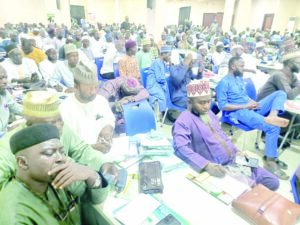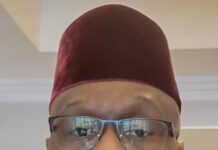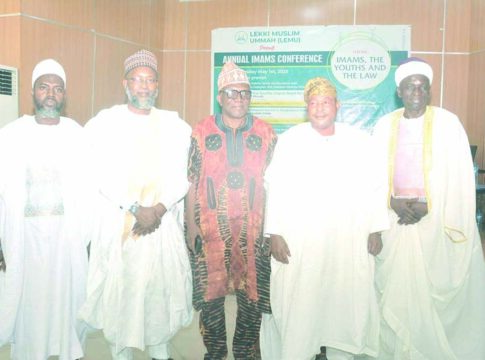Distinguished Islamic scholars and religious leaders in Lagos and neighbouring states converged at Lekki for the annual Imams Conference organised by Lekki Muslim Ummah (LEMU). Under the banner “Imams, the Youths and the Law,” the conference revealed a shared concern: the controversial practice of egg donation among female students and the growing disconnect between faith leaders and burgeoning youth population, in the face of the pressing need for reform and renewed understanding in Islamic leadership.
The event brought together prominent Islamic scholars, including Professor Abdurraheem Adeleke of Dean, Faculty of Law, Lagos State University (LASU); Dr. Abdullahi Shuaib, Lead Consultant at AS & Associates; Alhaji Oyinlomo Danmole, President of the Lagos Muslim Community and chairman of the conference; Shaykh Shakirullah Obale, Barrister Iskil Lawal, also tapping from the wealth of knowledge of the host Imam, Dr Ridwan Jamiu among others.

Egg Donation among females: A contentious issue
Professor Adeleke ignited a moral debate with his stance on reproductive donations. “Egg and sperm donation are not permissible in Islam,” he stated firmly. “What is allowed under the Shariah is blood donation, because blood can replenish itself—donating blood to save lives.” He warned of the moral implications of egg donation, particularly among young female students motivated by financial gains.
“When someone donates an egg, they attempt to create a lineage outside the bounds of marriage, which violates Islamic principles of lineage and inheritance,” Prof. Adeleke explained.
Alhaji Oyinlomo Danmole, President of the Lagos Muslim Community and chairman of the conference, echoed Prof. Adeleke’s sentiments, citing the Oxford vs. Oxford case.
Empowering Youth through Mosque Reform
Delivering his presentation on the topic: “Imam and the Youth: Urgent Need for a synergy, Dr. Abdullah Shuaib made a compelling case for creating youth councils within mosques nationwide. “Many Imams still speak in formal, classical Arabic or traditional expressions that young people may not fully understand or relate to,” Dr. Shuaib noted. He advocated for involving youths in sermon planning, mosque activities, and decision-making processes to bridge the gap between traditional mosque practices and the needs of modern youth.
“When young people feel they have ownership and voice in their community, they develop a sense of accountability and enthusiasm for service,” Dr. Shuaib said. “This is how we rebuild trust and relevance in our mosques.”
Imams need to change methods that reflect current realities — Dr Jamiu
Dr. Ridwan Jamiu, Chief Imam of Lekki, emphasized the need for continuous learning and adaptation, adding that Imams need to innovate in their approach.
“This conference is essentially a train-the-trainers programme. Imams must update their knowledge and preaching methods—reflecting current realities—without compromising Islamic principles. If we fail to do so, our da’wah will be ineffective or even cause harm.”
Dr. Jamiu urged Imams to innovate in their approach, focusing on issues that resonate with youths, such as mental health and online ethics.
“We expect that our Imams will be better informed about certain things. They need to understand that the world is evolving. The Imams need to change their methods – not into haram – but into methods that reflect the current realities, so the youths can be carried along.
“If da’wah is not well passed, it will not serve its purpose. In fact, it may even bring a negative impact on society,” he noted.























